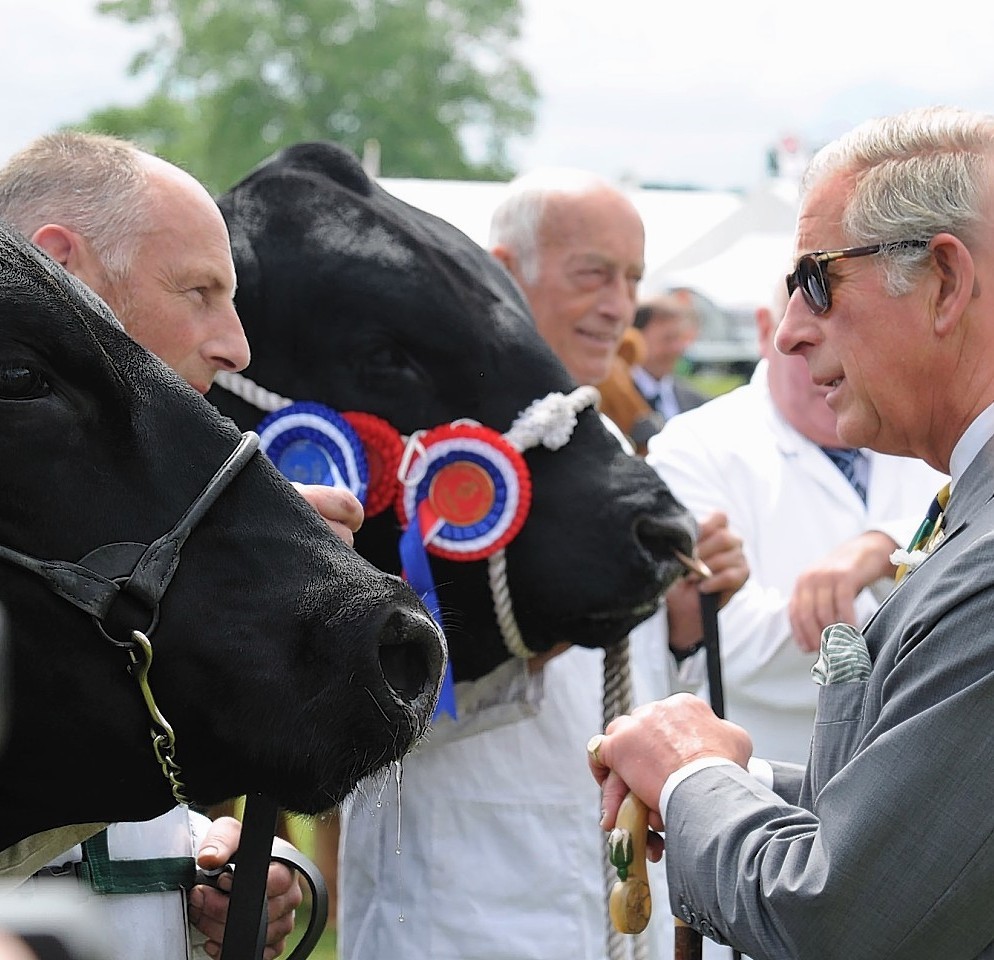Prince Charles has personally intervened to help protect the livelihoods of hundreds of farmers in some of Scotland’s most remote areas.
The Duke of Rothesay is spearheading a drive to safeguard the future of vital slaughterhouses on seven islands.
His backing is seen as key to the long-term survivals of more than 2,000 businesses on Shetland, Orkney, Islay, Mull, Lewis, Barra and North Uist.
The £150,000 “Sustaining island abattoirs in Scotland” project will offer mentoring support and back-up in the shape of funding and marketing help for abattoir operators.
Recent research revealed that 2,162 farming businesses are dependent on slaughterhouses on the seven islands.
The project is being led by Scottish Business in the Community, which the heir to the throne is president of, with support from the Scottish Agricultural Organisational Society, the Prince’s Countryside Fund and the Scottish Government.
Rural Affairs secretary Richard Lochhead said: “Local abattoirs play an important part in the food chain and the economy of these islands, providing locally-sourced produce, support for farming businesses and employment.
“By providing a slaughter and meat processing facility, Scotland’s island abattoirs are able to give farmers and butchers a local option instead of having to ship their livestock out of the area.”
He added: “As well as savings on haulage costs, there are also environmental benefits thanks to the reduction in food miles.
“We’re committed to the principle that animals should be slaughtered as close to where they are reared as possible.”
According to the project’s partners, 15 young people will benefit from improved skills and job opportunities as a result of the initiative.
In addition, the partners believe better facilities at the islands’ abattoirs will ensure animals are slaughtered “humanely” without the added stress and increased carbon footprint associated with transporting them to abattoirs on the mainland.
The project has been welcomed by the farming industry.
Shetland crofter Ronnie Eunson heads the new Scottish Island Abattoir Association which has received £300,000 from the prince’s charity Scottish Business in the Community and the Scottish Government.
He said the fund would pay for two new apprentices, new equipment and help extend the butchery section of the Lerwick abattoir.
More importantly, he said it would raise the profile and strengthen the voice of slaughterhouse operators, many of whom have been vulnerable to modern market and regulatory pressures.
Mr Eunson praised the prince for helping a sector which he said, “no government agency was willing to take on”, and added that his involvement had probably saved some abattoirs from closure.
The crofter said there had been a threefold increase in the volume of beef processed at the Shetland facility in the four years since it opened.
“We can raise our profile so the Scottish Government and Highlands and Islands Enterprise look more favourably on keeping these places open,” Mr Eunson said.
“I also hope it will help to ensure that the folk who work in these abattoirs are treated with more respect as central providers of meat for the local community.”
Jane Wood, chief executive of Scottish Business in the Community, said: “This rewarding project has brought together the widest possible range of partners, all of whom are determined to support the prince’s ambition to deliver sustainability for these vital businesses and a greater overall resilience for island communities.
“We will support the project in a number of ways, including leveraging the engagement of our membership to develop new market opportunities.
“Much work remains to be done but the economic and social value of this intervention cannot be underestimated.”
